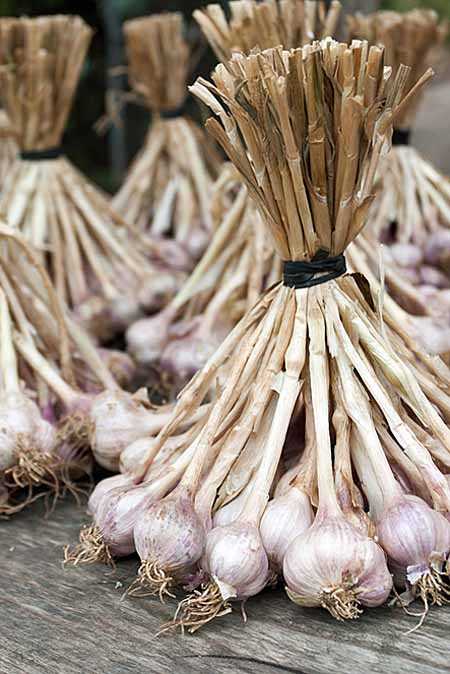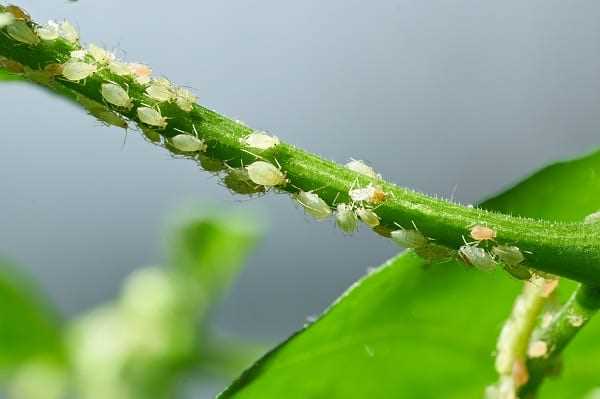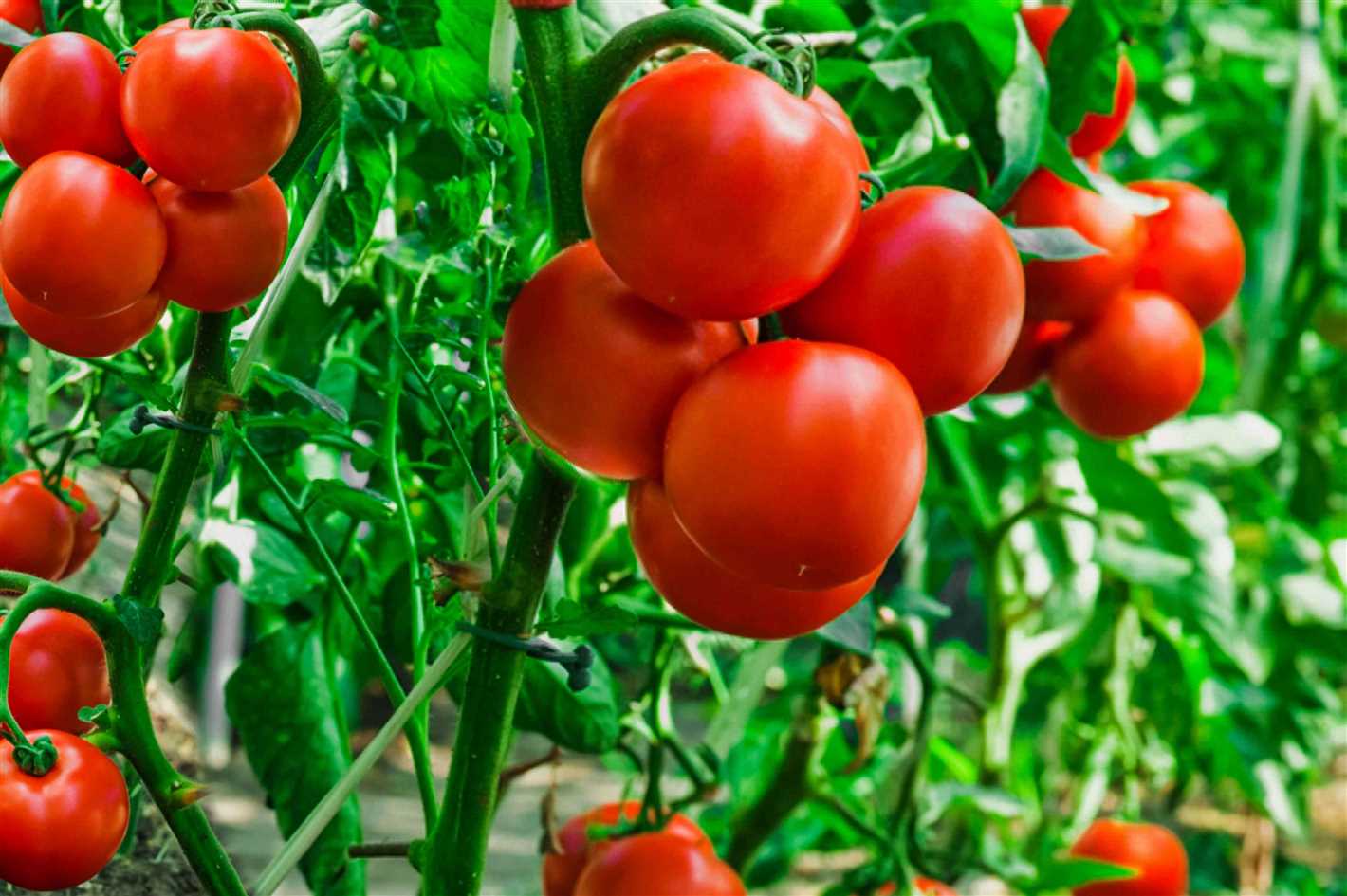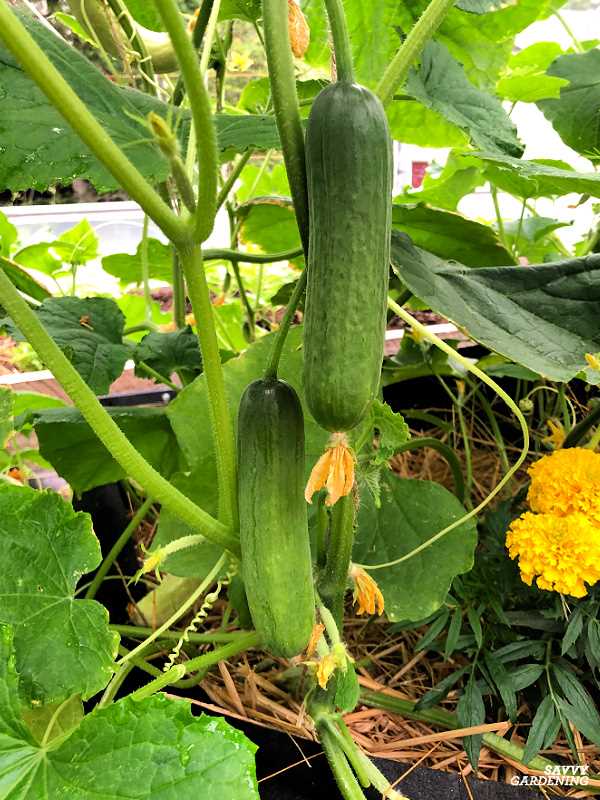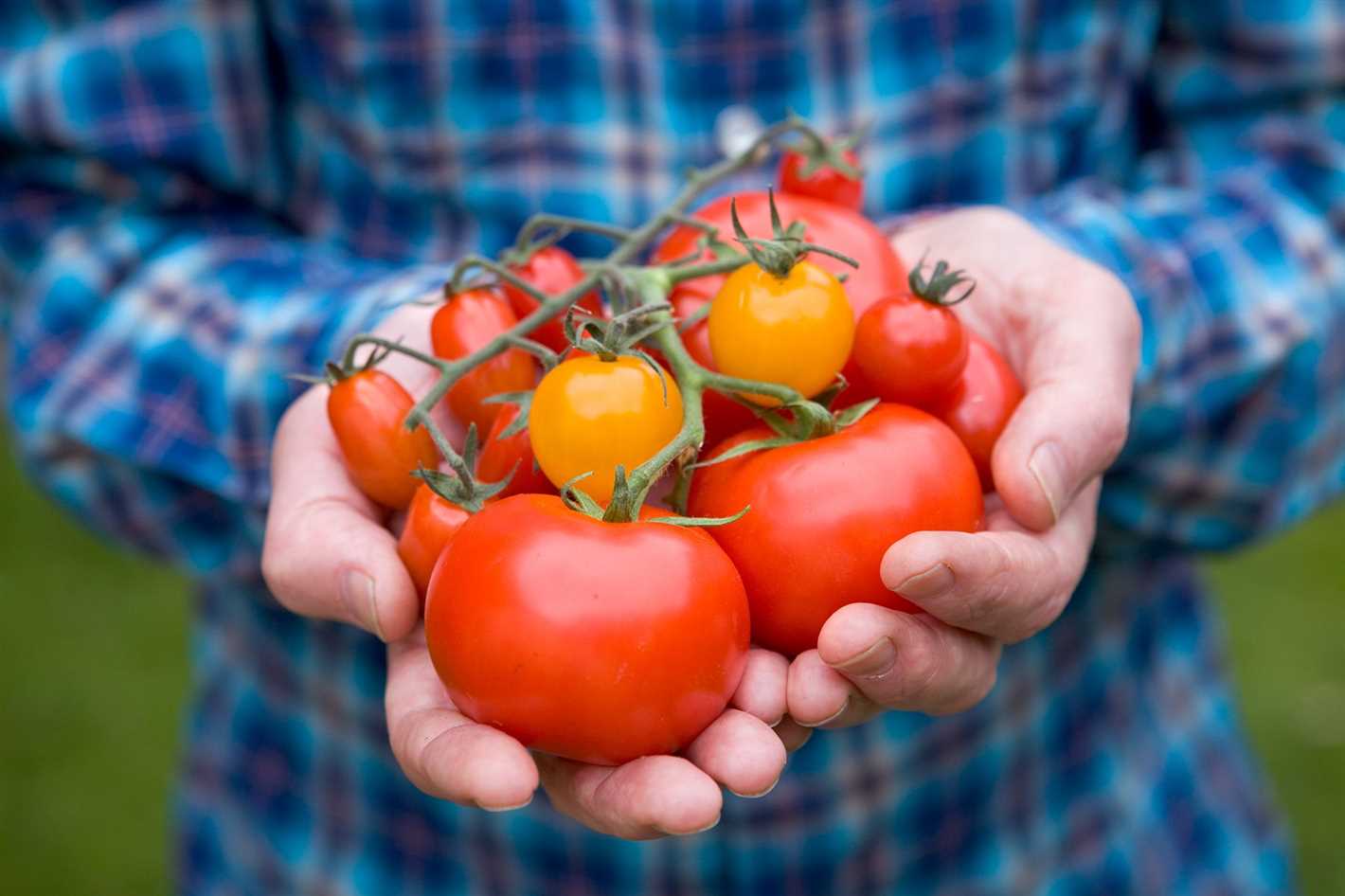- Learn How to Boost Your Dacha Plants’ Immunity
- 1. Choose Resilient Plant Varieties
- 2. Practice Crop Rotation
- 3. Use Organic Pest Control Methods
- 4. Provide Proper Nutrient Balance
- 5. Practice Good Watering Techniques
- 6. Monitor and Identify Problems Early
- Choose the Right Plants
- Provide Adequate Sunlight and Shade
- 1. Understand your plants’ light requirements
- 2. Position your plants strategically
- 3. Rotate your plants
- 4. Use shade cloth or umbrellas
- 5. Avoid overexposure to intense midday sun
- Implement Proper Watering Techniques 1. Water Dacha Plants Regularly Ensure that you water your dacha plants regularly to keep them hydrated. The frequency of watering depends on the plant species and weather conditions, but most plants require watering at least once a week. Check the soil moisture before watering. Insert your finger into the soil up to the knuckle. If the soil feels dry, it’s time to water. If it feels moist, wait for a few more days before watering. Water the plants deeply, allowing the water to reach the roots. Shallow watering may lead to weak root systems. 2. Use Proper Watering Techniques Avoid getting the foliage wet while watering. Wet leaves can promote the growth of fungal diseases. Direct the water towards the base of the plants instead. Use a watering can, hose, or a drip irrigation system for watering. These methods ensure a gentle and even distribution of water. Avoid overwatering as it can lead to root rot and other water-related issues. It’s better to underwater than overwater your dacha plants. 3. Water at the Right Time Water your dacha plants early in the morning or late in the evening. This allows the plants to absorb the water before it evaporates in the heat of the day. Avoid watering during the hottest part of the day, as the water may evaporate quickly and not reach the plant roots. Watering at the right time also prevents the leaves from getting burned by the sun. 4. Consider Using Mulch Apply a layer of organic mulch around your dacha plants to retain moisture in the soil. Mulch also helps regulate soil temperature and suppresses weed growth. Use materials like wood chips, straw, or compost as mulch. Apply a layer about 2-3 inches thick around the base of the plants, leaving a small space around the stem to prevent rotting. Mulching can reduce the frequency of watering as it slows down the evaporation of water from the soil. 5. Monitor and Adjust Watering Techniques Observe your dacha plants regularly and adjust your watering techniques based on their specific needs. Keep an eye out for signs of overwatering or underwatering, such as yellowing leaves, wilting, or root rot. Adjust the watering frequency accordingly. Consider the weather conditions and adjust your watering schedule accordingly. During hot and dry periods, you may need to water more frequently. Use Organic Fertilizers One of the most effective ways to boost the immunity of your dacha plants is by using organic fertilizers. These natural substances provide essential nutrients to the plants while also enhancing their resistance to diseases and pests. Benefits of Organic Fertilizers: Environment-friendly: Organic fertilizers are made from natural ingredients, such as compost, manure, and seaweed. They do not contain harmful chemicals that can harm the environment. Slow-release of nutrients: Organic fertilizers release nutrients slowly, ensuring a steady supply of nourishment for your plants over a longer period of time. This helps in the sustained growth and development of your dacha plants. Improved soil structure: Organic fertilizers improve the structure of the soil by increasing its organic matter content. They enhance the soil’s ability to retain moisture, improve drainage, and promote beneficial microbial activity. Prevention of nutrient leaching: Unlike synthetic fertilizers, organic fertilizers reduce the risk of nutrient leaching. This means that the nutrients remain in the soil, available for your plants to absorb, rather than being washed away by rain or irrigation. Types of Organic Fertilizers: There are various types of organic fertilizers available that you can use to boost the immunity of your dacha plants: Compost: Compost is a nutrient-rich organic matter that is created by decomposing plant and animal waste. It provides a balanced combination of macro and micronutrients, improves soil structure, and enhances the growth of beneficial soil organisms. Manure: Animal manure, such as cow, horse, or chicken manure, is an excellent source of nitrogen, phosphorus, and potassium. It enriches the soil with essential nutrients and improves its fertility. Seaweed: Seaweed-based fertilizers are derived from marine algae. They are rich in trace minerals, growth hormones, and beneficial plant compounds. Seaweed fertilizers promote root development, increase nutrient uptake, and enhance the overall health of the plants. Bone meal: Bone meal is made from ground-up animal bones and is a great source of phosphorus and calcium. It helps in strengthening the plants’ cell walls, promoting flowering and fruiting, and improving overall plant vigor. Application of Organic Fertilizers: When applying organic fertilizers to your dacha plants, it is important to read and follow the instructions provided on the packaging. Generally, you can apply organic fertilizers by: Mixing the fertilizer with the soil before planting your plants. Applying the fertilizer around the base of established plants, avoiding direct contact with the stems or leaves. Watering the plants after the application of fertilizer to ensure proper absorption. By using organic fertilizers, you can provide your dacha plants with the necessary nutrients they need to thrive and boost their immune system naturally. Keep an Eye on Pest Control Identify Common Pests It is important to be able to identify common pests that can damage your dacha plants. Some of the most common pests include aphids, snails, slugs, caterpillars, and spider mites. Learning to recognize these pests will allow you to take appropriate measures to control them. Implement Preventive Measures Prevention is key when it comes to pest control. Implementing preventive measures can help minimize the chances of pests infesting your dacha plants. Some effective preventive measures include: Keeping the garden area clean and free of debris. Regularly inspecting the plants for any signs of pests. Providing proper spacing between plants to reduce the spread of pests. Removing any infected or damaged plants promptly. Natural Pest Control Methods When it comes to pest control, using natural methods is often the best approach. Some effective natural pest control methods include: Introducing beneficial insects such as ladybugs or praying mantises that feed on pests. Using neem oil or insecticidal soap, which are organic and environmentally friendly options. Creating physical barriers such as nets or fences to keep out pests. Chemical Pest Control In severe infestation cases, chemical pest control methods may be necessary. However, it is important to use these methods as a last resort and always follow the instructions carefully. Some common chemical pest control products include insecticides and fungicides. Always consider the potential risks and benefits before using chemical treatments. Regular Monitoring Regularly monitoring your dacha plants for any signs of pests is crucial. Inspect the plants and look for any visible damage, discolored leaves, or presence of pests. Early detection can help prevent further damage and allow for timely intervention. Ensure Proper Soil Drainage The first step in ensuring the health and immunity of your dacha plants is to make sure they are planted in soil with proper drainage. Poor soil drainage can lead to waterlogged roots, which can cause root rot and other diseases. To ensure proper drainage, follow these tips: Choose the right soil: Use a well-draining soil mix that contains a good balance of organic matter and inorganic materials. Avoid heavy clay soils that can retain water. Amend the soil: If your soil doesn’t have good drainage, you can improve it by adding organic matter such as compost or peat moss. These materials help to break up heavy soils and improve their drainage. Use raised beds or containers: If you have heavy clay soil that drains poorly, consider planting your dacha plants in raised beds or containers. This allows you to control the soil mixture and ensure proper drainage. Avoid overwatering: Water your plants only when the top inch of soil is dry to the touch. Overwatering can lead to waterlogged roots and poor drainage. By ensuring proper soil drainage, you can prevent water-related diseases and create a healthy environment for your dacha plants to thrive. Remember to regularly check the soil moisture levels and adjust your watering schedule accordingly. Your plants will thank you for it! Prune and Trim Regularly Regular pruning and trimming are essential for maintaining the health and vitality of your dacha plants. By removing dead or diseased branches, you can prevent the spread of diseases and improve overall plant health. 1. Tools: Before you start pruning, make sure you have the right tools on hand. A pair of sharp bypass pruners, pruning saw, and hedge shears will come in handy for different pruning needs. 2. Timing: The best time to prune your dacha plants is during their dormant season, which is typically in late winter or early spring. Pruning during this time will minimize stress on the plants and help them recover quickly. 3. Techniques: When pruning, aim to remove any dead, damaged, or crossing branches. Cut just above a healthy bud or lateral branch to promote new growth. For larger branches, use a three-cut method to avoid tearing the bark and causing damage to the plant. 4. Shape and Size: Regular pruning can also help maintain the desired shape and size of your dacha plants. Trim back any overgrown branches to encourage a compact and bushy appearance. Maintain a balanced structure by pruning back excessive growth on one side. 5. Cleaning and Disinfection: After each pruning session, it’s important to clean and disinfect your pruning tools to prevent the spread of diseases. Use a solution of 70% rubbing alcohol or bleach to sanitize the tools. 6. Dispose of Waste: Properly dispose of the pruned branches and leaves to prevent the accumulation of debris, which can attract pests and diseases. Composting or disposing of the waste at a municipal green waste facility are environmentally-friendly options. By regularly pruning and trimming your dacha plants, you can promote their overall health and well-being. Follow these techniques and tips to ensure your plants thrive and flourish throughout the seasons. Use Innovative Plant Protection Methods Mulching Mulching is a highly effective method to protect your plants from pests and diseases. The process involves covering the soil around your plants with a layer of organic material, such as straw or wood chips. This layer helps to retain moisture, suppress weeds, and regulate soil temperature, creating a more favorable environment for your plants to grow. Companion Planting Companion planting is the practice of planting certain plants together to promote growth and protect against pests and diseases. Some plants naturally repel pests, while others attract beneficial insects that prey on pests. By strategically planting these companion plants alongside your dacha plants, you can create a natural defense system and improve overall plant health. Biological Pest Control Biological pest control involves using living organisms, such as predatory insects or microorganisms, to control pests. These natural enemies feed on pests, reducing their populations and preventing damage to your plants. Introducing ladybugs, lacewings, or nematodes into your dacha garden can help control common pests like aphids and spider mites without the need for chemical pesticides. Row Covers Row covers are lightweight, translucent fabrics that can be placed over your plants to protect them from pests and harsh weather conditions. These covers create a physical barrier that prevents insects from reaching your plants while still allowing sunlight, water, and air to pass through. Row covers are especially useful for protecting young seedlings and vulnerable plants from pests like cabbage worms and flea beetles. Drip Irrigation Drip irrigation is a water-efficient method of watering your dacha plants that can also help prevent diseases. By delivering water directly to the roots of your plants, drip irrigation minimizes the amount of water that comes into contact with the leaves and stems, reducing the risk of fungal diseases. Additionally, drip irrigation ensures that plants receive a consistent and controlled water supply, promoting healthy growth and reducing stress. Crop Rotation Crop rotation is an essential practice for maintaining plant health and preventing the buildup of pests and diseases in the soil. By rotating the types of crops you grow in different areas of your dacha garden each year, you disrupt the life cycles of pests and diseases that may be specific to certain crops. This reduces the risk of infestations and allows the soil to naturally regenerate and replenish nutrients. Organic Insecticides If all else fails and you’re still experiencing pest problems in your dacha garden, consider using organic insecticides as a last resort. These insecticides are derived from natural substances, such as plant oils and extracts, and are less harmful to beneficial insects and the environment. Always use organic insecticides according to the manufacturer’s instructions and as a targeted solution to specific pest issues. “Question-Answer” What are some innovative techniques to boost the immunity of dacha plants? There are several innovative techniques that you can use to boost the immunity of your dacha plants. One such technique is using companion planting, where you plant certain plants together that have a mutually beneficial relationship. Another technique is utilizing biostimulants, which are substances that can enhance plant growth and development. Additionally, you can try using organic fertilizers and pest control methods to promote plant health. Can you explain more about companion planting? Companion planting is a technique where you plant certain plants together that have a mutual benefit. For example, planting marigolds alongside your vegetable plants can help repel pests. Another example is planting legumes, such as beans or peas, alongside nitrogen-hungry plants like tomatoes, as legumes have the ability to fix nitrogen in the soil. This can help improve the overall health and productivity of your dacha plants. What are some common biostimulants that can be used to boost plant immunity? There are several common biostimulants that can be used to boost plant immunity. One popular biostimulant is seaweed extract, which is rich in trace minerals and growth-promoting substances. Another biostimulant is humic acid, which can improve soil structure and nutrient availability. Additionally, beneficial microorganisms, such as mycorrhizal fungi, can also be used as biostimulants to enhance plant health. Are there any organic fertilizers that are particularly effective in boosting plant immunity? Yes, there are several organic fertilizers that are particularly effective in boosting plant immunity. One such fertilizer is compost, which is a nutrient-rich material made from decomposed organic matter. Another effective organic fertilizer is worm castings, which are the waste produced by earthworms. These organic fertilizers not only provide essential nutrients to plants but also improve soil fertility and microbial activity, thereby enhancing plant immunity. What are some natural pest control methods that can help protect dacha plants? There are several natural pest control methods that can help protect dacha plants. One method is using insect-repellent plants, such as basil or marigolds, to deter pests. Another method is using homemade organic insecticides, such as neem oil or garlic spray. Additionally, practicing good garden hygiene, such as removing diseased plants or regularly inspecting for pests, can help prevent and control pest infestations. “Video” My Russian Dacha. Cooking Okroshka with my Aunt
- 1. Water Dacha Plants Regularly Ensure that you water your dacha plants regularly to keep them hydrated. The frequency of watering depends on the plant species and weather conditions, but most plants require watering at least once a week. Check the soil moisture before watering. Insert your finger into the soil up to the knuckle. If the soil feels dry, it’s time to water. If it feels moist, wait for a few more days before watering. Water the plants deeply, allowing the water to reach the roots. Shallow watering may lead to weak root systems. 2. Use Proper Watering Techniques Avoid getting the foliage wet while watering. Wet leaves can promote the growth of fungal diseases. Direct the water towards the base of the plants instead. Use a watering can, hose, or a drip irrigation system for watering. These methods ensure a gentle and even distribution of water. Avoid overwatering as it can lead to root rot and other water-related issues. It’s better to underwater than overwater your dacha plants. 3. Water at the Right Time Water your dacha plants early in the morning or late in the evening. This allows the plants to absorb the water before it evaporates in the heat of the day. Avoid watering during the hottest part of the day, as the water may evaporate quickly and not reach the plant roots. Watering at the right time also prevents the leaves from getting burned by the sun. 4. Consider Using Mulch Apply a layer of organic mulch around your dacha plants to retain moisture in the soil. Mulch also helps regulate soil temperature and suppresses weed growth. Use materials like wood chips, straw, or compost as mulch. Apply a layer about 2-3 inches thick around the base of the plants, leaving a small space around the stem to prevent rotting. Mulching can reduce the frequency of watering as it slows down the evaporation of water from the soil. 5. Monitor and Adjust Watering Techniques Observe your dacha plants regularly and adjust your watering techniques based on their specific needs. Keep an eye out for signs of overwatering or underwatering, such as yellowing leaves, wilting, or root rot. Adjust the watering frequency accordingly. Consider the weather conditions and adjust your watering schedule accordingly. During hot and dry periods, you may need to water more frequently. Use Organic Fertilizers One of the most effective ways to boost the immunity of your dacha plants is by using organic fertilizers. These natural substances provide essential nutrients to the plants while also enhancing their resistance to diseases and pests. Benefits of Organic Fertilizers: Environment-friendly: Organic fertilizers are made from natural ingredients, such as compost, manure, and seaweed. They do not contain harmful chemicals that can harm the environment. Slow-release of nutrients: Organic fertilizers release nutrients slowly, ensuring a steady supply of nourishment for your plants over a longer period of time. This helps in the sustained growth and development of your dacha plants. Improved soil structure: Organic fertilizers improve the structure of the soil by increasing its organic matter content. They enhance the soil’s ability to retain moisture, improve drainage, and promote beneficial microbial activity. Prevention of nutrient leaching: Unlike synthetic fertilizers, organic fertilizers reduce the risk of nutrient leaching. This means that the nutrients remain in the soil, available for your plants to absorb, rather than being washed away by rain or irrigation. Types of Organic Fertilizers: There are various types of organic fertilizers available that you can use to boost the immunity of your dacha plants: Compost: Compost is a nutrient-rich organic matter that is created by decomposing plant and animal waste. It provides a balanced combination of macro and micronutrients, improves soil structure, and enhances the growth of beneficial soil organisms. Manure: Animal manure, such as cow, horse, or chicken manure, is an excellent source of nitrogen, phosphorus, and potassium. It enriches the soil with essential nutrients and improves its fertility. Seaweed: Seaweed-based fertilizers are derived from marine algae. They are rich in trace minerals, growth hormones, and beneficial plant compounds. Seaweed fertilizers promote root development, increase nutrient uptake, and enhance the overall health of the plants. Bone meal: Bone meal is made from ground-up animal bones and is a great source of phosphorus and calcium. It helps in strengthening the plants’ cell walls, promoting flowering and fruiting, and improving overall plant vigor. Application of Organic Fertilizers: When applying organic fertilizers to your dacha plants, it is important to read and follow the instructions provided on the packaging. Generally, you can apply organic fertilizers by: Mixing the fertilizer with the soil before planting your plants. Applying the fertilizer around the base of established plants, avoiding direct contact with the stems or leaves. Watering the plants after the application of fertilizer to ensure proper absorption. By using organic fertilizers, you can provide your dacha plants with the necessary nutrients they need to thrive and boost their immune system naturally. Keep an Eye on Pest Control Identify Common Pests It is important to be able to identify common pests that can damage your dacha plants. Some of the most common pests include aphids, snails, slugs, caterpillars, and spider mites. Learning to recognize these pests will allow you to take appropriate measures to control them. Implement Preventive Measures Prevention is key when it comes to pest control. Implementing preventive measures can help minimize the chances of pests infesting your dacha plants. Some effective preventive measures include: Keeping the garden area clean and free of debris. Regularly inspecting the plants for any signs of pests. Providing proper spacing between plants to reduce the spread of pests. Removing any infected or damaged plants promptly. Natural Pest Control Methods When it comes to pest control, using natural methods is often the best approach. Some effective natural pest control methods include: Introducing beneficial insects such as ladybugs or praying mantises that feed on pests. Using neem oil or insecticidal soap, which are organic and environmentally friendly options. Creating physical barriers such as nets or fences to keep out pests. Chemical Pest Control In severe infestation cases, chemical pest control methods may be necessary. However, it is important to use these methods as a last resort and always follow the instructions carefully. Some common chemical pest control products include insecticides and fungicides. Always consider the potential risks and benefits before using chemical treatments. Regular Monitoring Regularly monitoring your dacha plants for any signs of pests is crucial. Inspect the plants and look for any visible damage, discolored leaves, or presence of pests. Early detection can help prevent further damage and allow for timely intervention. Ensure Proper Soil Drainage The first step in ensuring the health and immunity of your dacha plants is to make sure they are planted in soil with proper drainage. Poor soil drainage can lead to waterlogged roots, which can cause root rot and other diseases. To ensure proper drainage, follow these tips: Choose the right soil: Use a well-draining soil mix that contains a good balance of organic matter and inorganic materials. Avoid heavy clay soils that can retain water. Amend the soil: If your soil doesn’t have good drainage, you can improve it by adding organic matter such as compost or peat moss. These materials help to break up heavy soils and improve their drainage. Use raised beds or containers: If you have heavy clay soil that drains poorly, consider planting your dacha plants in raised beds or containers. This allows you to control the soil mixture and ensure proper drainage. Avoid overwatering: Water your plants only when the top inch of soil is dry to the touch. Overwatering can lead to waterlogged roots and poor drainage. By ensuring proper soil drainage, you can prevent water-related diseases and create a healthy environment for your dacha plants to thrive. Remember to regularly check the soil moisture levels and adjust your watering schedule accordingly. Your plants will thank you for it! Prune and Trim Regularly Regular pruning and trimming are essential for maintaining the health and vitality of your dacha plants. By removing dead or diseased branches, you can prevent the spread of diseases and improve overall plant health. 1. Tools: Before you start pruning, make sure you have the right tools on hand. A pair of sharp bypass pruners, pruning saw, and hedge shears will come in handy for different pruning needs. 2. Timing: The best time to prune your dacha plants is during their dormant season, which is typically in late winter or early spring. Pruning during this time will minimize stress on the plants and help them recover quickly. 3. Techniques: When pruning, aim to remove any dead, damaged, or crossing branches. Cut just above a healthy bud or lateral branch to promote new growth. For larger branches, use a three-cut method to avoid tearing the bark and causing damage to the plant. 4. Shape and Size: Regular pruning can also help maintain the desired shape and size of your dacha plants. Trim back any overgrown branches to encourage a compact and bushy appearance. Maintain a balanced structure by pruning back excessive growth on one side. 5. Cleaning and Disinfection: After each pruning session, it’s important to clean and disinfect your pruning tools to prevent the spread of diseases. Use a solution of 70% rubbing alcohol or bleach to sanitize the tools. 6. Dispose of Waste: Properly dispose of the pruned branches and leaves to prevent the accumulation of debris, which can attract pests and diseases. Composting or disposing of the waste at a municipal green waste facility are environmentally-friendly options. By regularly pruning and trimming your dacha plants, you can promote their overall health and well-being. Follow these techniques and tips to ensure your plants thrive and flourish throughout the seasons. Use Innovative Plant Protection Methods Mulching Mulching is a highly effective method to protect your plants from pests and diseases. The process involves covering the soil around your plants with a layer of organic material, such as straw or wood chips. This layer helps to retain moisture, suppress weeds, and regulate soil temperature, creating a more favorable environment for your plants to grow. Companion Planting Companion planting is the practice of planting certain plants together to promote growth and protect against pests and diseases. Some plants naturally repel pests, while others attract beneficial insects that prey on pests. By strategically planting these companion plants alongside your dacha plants, you can create a natural defense system and improve overall plant health. Biological Pest Control Biological pest control involves using living organisms, such as predatory insects or microorganisms, to control pests. These natural enemies feed on pests, reducing their populations and preventing damage to your plants. Introducing ladybugs, lacewings, or nematodes into your dacha garden can help control common pests like aphids and spider mites without the need for chemical pesticides. Row Covers Row covers are lightweight, translucent fabrics that can be placed over your plants to protect them from pests and harsh weather conditions. These covers create a physical barrier that prevents insects from reaching your plants while still allowing sunlight, water, and air to pass through. Row covers are especially useful for protecting young seedlings and vulnerable plants from pests like cabbage worms and flea beetles. Drip Irrigation Drip irrigation is a water-efficient method of watering your dacha plants that can also help prevent diseases. By delivering water directly to the roots of your plants, drip irrigation minimizes the amount of water that comes into contact with the leaves and stems, reducing the risk of fungal diseases. Additionally, drip irrigation ensures that plants receive a consistent and controlled water supply, promoting healthy growth and reducing stress. Crop Rotation Crop rotation is an essential practice for maintaining plant health and preventing the buildup of pests and diseases in the soil. By rotating the types of crops you grow in different areas of your dacha garden each year, you disrupt the life cycles of pests and diseases that may be specific to certain crops. This reduces the risk of infestations and allows the soil to naturally regenerate and replenish nutrients. Organic Insecticides If all else fails and you’re still experiencing pest problems in your dacha garden, consider using organic insecticides as a last resort. These insecticides are derived from natural substances, such as plant oils and extracts, and are less harmful to beneficial insects and the environment. Always use organic insecticides according to the manufacturer’s instructions and as a targeted solution to specific pest issues. “Question-Answer” What are some innovative techniques to boost the immunity of dacha plants? There are several innovative techniques that you can use to boost the immunity of your dacha plants. One such technique is using companion planting, where you plant certain plants together that have a mutually beneficial relationship. Another technique is utilizing biostimulants, which are substances that can enhance plant growth and development. Additionally, you can try using organic fertilizers and pest control methods to promote plant health. Can you explain more about companion planting? Companion planting is a technique where you plant certain plants together that have a mutual benefit. For example, planting marigolds alongside your vegetable plants can help repel pests. Another example is planting legumes, such as beans or peas, alongside nitrogen-hungry plants like tomatoes, as legumes have the ability to fix nitrogen in the soil. This can help improve the overall health and productivity of your dacha plants. What are some common biostimulants that can be used to boost plant immunity? There are several common biostimulants that can be used to boost plant immunity. One popular biostimulant is seaweed extract, which is rich in trace minerals and growth-promoting substances. Another biostimulant is humic acid, which can improve soil structure and nutrient availability. Additionally, beneficial microorganisms, such as mycorrhizal fungi, can also be used as biostimulants to enhance plant health. Are there any organic fertilizers that are particularly effective in boosting plant immunity? Yes, there are several organic fertilizers that are particularly effective in boosting plant immunity. One such fertilizer is compost, which is a nutrient-rich material made from decomposed organic matter. Another effective organic fertilizer is worm castings, which are the waste produced by earthworms. These organic fertilizers not only provide essential nutrients to plants but also improve soil fertility and microbial activity, thereby enhancing plant immunity. What are some natural pest control methods that can help protect dacha plants? There are several natural pest control methods that can help protect dacha plants. One method is using insect-repellent plants, such as basil or marigolds, to deter pests. Another method is using homemade organic insecticides, such as neem oil or garlic spray. Additionally, practicing good garden hygiene, such as removing diseased plants or regularly inspecting for pests, can help prevent and control pest infestations. “Video” My Russian Dacha. Cooking Okroshka with my Aunt
- 1. Water Dacha Plants Regularly
- 2. Use Proper Watering Techniques
- 3. Water at the Right Time
- 4. Consider Using Mulch
- 5. Monitor and Adjust Watering Techniques
- Use Organic Fertilizers
- Benefits of Organic Fertilizers:
- Types of Organic Fertilizers:
- Application of Organic Fertilizers:
- Keep an Eye on Pest Control
- Identify Common Pests
- Implement Preventive Measures
- Natural Pest Control Methods
- Chemical Pest Control
- Regular Monitoring
- Ensure Proper Soil Drainage
- Prune and Trim Regularly
- Use Innovative Plant Protection Methods
- Mulching
- Companion Planting
- Biological Pest Control
- Row Covers
- Drip Irrigation
- Crop Rotation
- Organic Insecticides
- “Question-Answer”
- What are some innovative techniques to boost the immunity of dacha plants?
- Can you explain more about companion planting?
- What are some common biostimulants that can be used to boost plant immunity?
- Are there any organic fertilizers that are particularly effective in boosting plant immunity?
- What are some natural pest control methods that can help protect dacha plants?
- “Video” My Russian Dacha. Cooking Okroshka with my Aunt
As summer approaches, many people turn their attention to their dacha gardens and outdoor plants. Whether you’re a seasoned gardener or a beginner, it’s important to ensure that your plants have strong immune systems to withstand the various challenges they may face. In this article, we will explore some innovative techniques that can help boost your dacha plants’ immunity.
One effective way to strengthen your plants’ immune systems is by using organic fertilizers and soil amendments. These natural products provide essential nutrients that help plants grow healthy and strong. They also promote beneficial microbial activity in the soil, creating a harmonious environment for plant growth. By choosing organic options, you can avoid the harmful chemicals found in synthetic fertilizers that can weaken plants over time.
Another technique that can enhance your plants’ immunity is companion planting. This age-old practice involves strategically placing certain plants together to maximize their growth and health. For example, some plants have natural pest-repellent properties, while others attract beneficial insects that can control pests. By carefully selecting your plant combinations, you can create a natural defense system in your dacha garden that will help protect your plants from damaging insects and diseases.
In addition to organic fertilizers and companion planting, it’s important to provide your plants with proper care and maintenance. This includes regular watering, pruning, and removing any diseased or damaged foliage. By keeping your plants clean and well-maintained, you can reduce the risk of infections and ensure their overall health and vitality.
By implementing these innovative techniques, you can boost your dacha plants’ immunity and give them the best chance of thriving in your garden. Whether you’re facing pests, diseases, or adverse weather conditions, a strong immune system is essential for your plants’ survival. So, get ready to enjoy a beautiful and healthy garden all summer long!
Learn How to Boost Your Dacha Plants’ Immunity
Gardening in your dacha can be a rewarding and fulfilling hobby, but it can also come with its challenges. One of the most common problems gardeners face is the susceptibility of plants to diseases and pests. However, by following some innovative techniques, you can boost your dacha plants’ immunity and help them thrive.
1. Choose Resilient Plant Varieties
Start by selecting plant varieties that are known for their disease resistance. Look for plants that have been specifically bred or developed to withstand common diseases in your region. These plants will have a natural immunity to some of the most prevalent garden pests and diseases.
2. Practice Crop Rotation
Rotating your crops each growing season can help prevent the buildup of pests and diseases in the soil. Different plants have different nutrient needs and attract different pests, so by rotating the location of your crops, you can disrupt the life cycles of pests and limit the spread of diseases.
3. Use Organic Pest Control Methods
Avoid relying on harsh chemical pesticides and opt for organic pest control methods instead. There are many ways to naturally control pests in your garden, such as introducing beneficial insects, using companion planting techniques, and creating physical barriers. These methods will help protect your plants without harming the environment.
4. Provide Proper Nutrient Balance
Healthy plants are better equipped to fight off pests and diseases. Make sure your dacha plants receive the right balance of nutrients through proper soil preparation and regular fertilization. Test your soil to determine any nutrient deficiencies and adjust your fertilization schedule accordingly.
5. Practice Good Watering Techniques
Overwatering or underwatering can weaken your plants’ immune systems and make them more susceptible to diseases. Water your plants deeply but infrequently to encourage deep root growth and prevent the development of shallow, weak roots. Additionally, try to water in the morning to allow foliage to dry quickly and minimize the risk of fungal diseases.
6. Monitor and Identify Problems Early
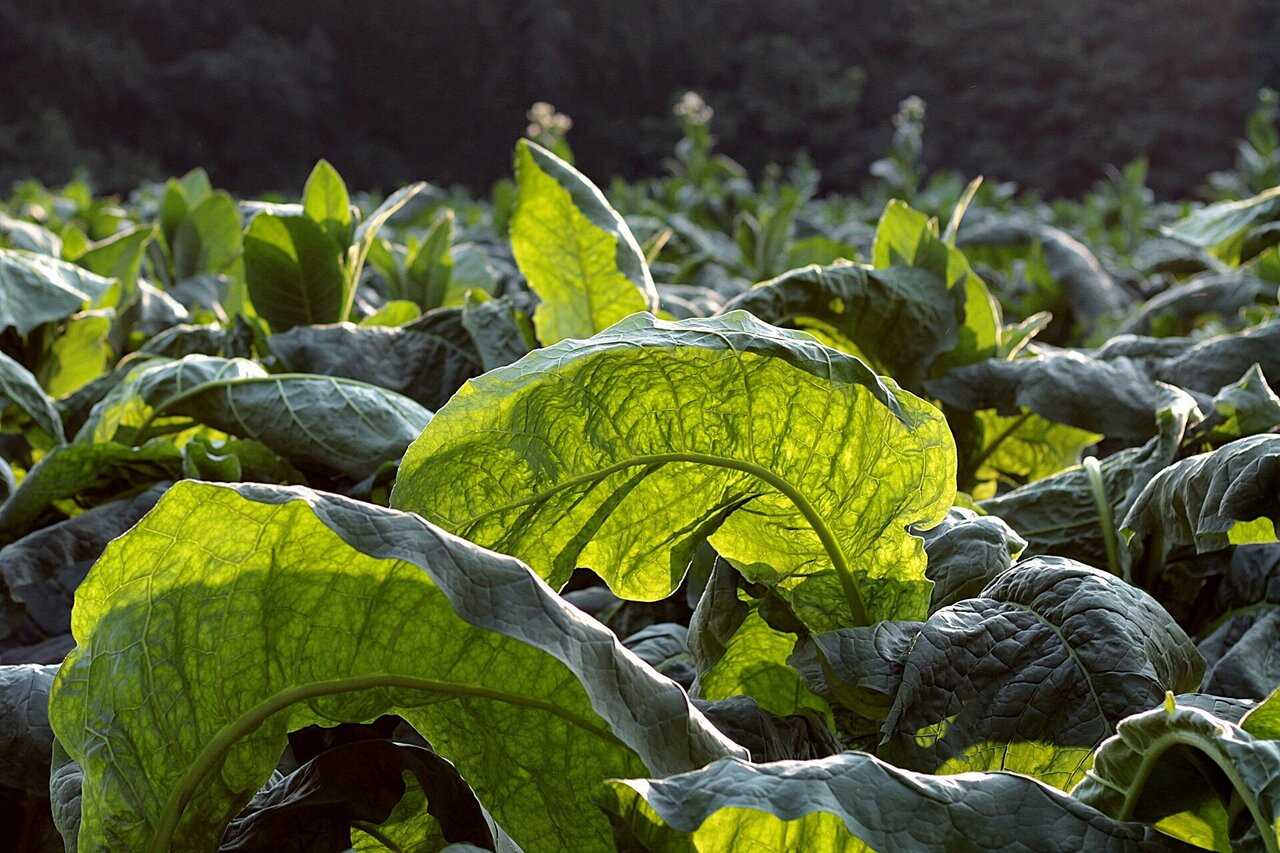
Regularly inspect your plants for any signs of pests or diseases. Early detection is key to preventing further spread and damage. Learn to identify common garden pests and diseases so that you can take immediate action when necessary.
By following these innovative techniques, you can boost your dacha plants’ immunity and create a thriving and healthy garden. Remember to stay proactive and monitor your plants regularly to catch any issues before they become severe.
Choose the Right Plants

- Consider the Climate: Choose plants that are suitable for the climate in your area. Different plants have different requirements for temperature, humidity, and sun exposure. Make sure you choose plants that can thrive in your specific climate.
- Research Disease-Resistant Varieties: Look for plants that have been bred to be resistant to common diseases and pests. These varieties are often labeled as disease-resistant or have specific resistance traits, such as being resistant to powdery mildew or aphids.
- Check for Local Adaptability: Some plants are better suited to specific regions or microclimates. Check with local gardening experts, nurseries, or agricultural extension offices to find out which plants are well-adapted to your area.
- Consider Companion Planting: Some plants have natural pest-repellent properties or can attract beneficial insects. Consider planting companion plants that can help protect your dacha plants from diseases and pests.
- Choose Varied Plants: Planting a variety of plants can help prevent the spread of diseases and pests. If one plant becomes infected, it is less likely to spread to the others if they are different species or varieties.
By choosing the right plants for your dacha, you can help boost their immunity and increase their chances of surviving and thriving.
Provide Adequate Sunlight and Shade
To ensure the proper growth and development of your dacha plants, it is crucial to provide them with adequate sunlight and shade. Different plants have different preferences when it comes to light conditions, so it is important to do your research and understand the needs of each plant species you have in your dacha.
1. Understand your plants’ light requirements

Some plants thrive in full sunlight and need at least 6-8 hours of direct sunlight per day, while others prefer partial shade and cannot tolerate harsh sunlight. Take the time to identify the light requirements of each plant and arrange them accordingly in your dacha garden.
2. Position your plants strategically
Once you know the light preferences of your plants, position them in areas of your dacha that can fulfill their requirements. Place sun-loving plants in areas that receive the most sunlight throughout the day, such as open fields or near south-facing walls.
For plants that prefer shade, consider creating shade structures, such as pergolas or trellises, to provide them with the necessary protection from direct sunlight. You can also plant them in areas that are naturally shaded by trees or taller plants.
3. Rotate your plants
To ensure that all your dacha plants receive an equal amount of sunlight, rotate their positions periodically. This will help prevent one side of the plant from becoming stronger and healthier while the other side becomes weak and leggy due to uneven light exposure. By rotating your plants, you can promote more balanced growth.
4. Use shade cloth or umbrellas
If you have plants that need partial shade but are exposed to too much direct sunlight, you can use shade cloth or umbrellas to create temporary shade. These can be easily placed over plants during the hottest hours of the day or during heatwaves to protect them from excessive sunlight.
5. Avoid overexposure to intense midday sun
In regions with hot climates, it is important to protect your dacha plants from intense midday sun, especially during summer months. The harsh rays of the sun can cause leaf burn and excessive moisture loss. Consider using sunscreens or shades during peak sun hours to shield your plants from these unfavorable conditions.
By providing your dacha plants with the right amount of sunlight and shade, you can ensure their healthy growth and boost their immune system. Remember to adjust the light conditions according to the specific needs of each plant and stay attentive to changes in their growth patterns to make necessary adjustments.
Implement Proper Watering Techniques1. Water Dacha Plants Regularly
- Ensure that you water your dacha plants regularly to keep them hydrated. The frequency of watering depends on the plant species and weather conditions, but most plants require watering at least once a week.
- Check the soil moisture before watering. Insert your finger into the soil up to the knuckle. If the soil feels dry, it’s time to water. If it feels moist, wait for a few more days before watering.
- Water the plants deeply, allowing the water to reach the roots. Shallow watering may lead to weak root systems.
2. Use Proper Watering Techniques
1. Water Dacha Plants Regularly
- Ensure that you water your dacha plants regularly to keep them hydrated. The frequency of watering depends on the plant species and weather conditions, but most plants require watering at least once a week.
- Check the soil moisture before watering. Insert your finger into the soil up to the knuckle. If the soil feels dry, it’s time to water. If it feels moist, wait for a few more days before watering.
- Water the plants deeply, allowing the water to reach the roots. Shallow watering may lead to weak root systems.
2. Use Proper Watering Techniques
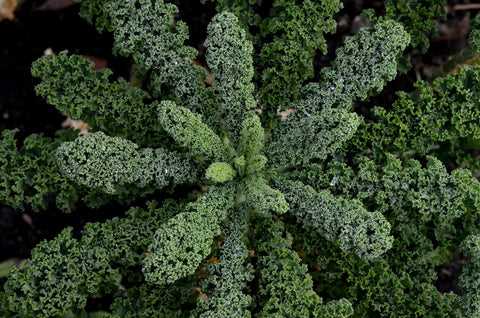
- Avoid getting the foliage wet while watering. Wet leaves can promote the growth of fungal diseases. Direct the water towards the base of the plants instead.
- Use a watering can, hose, or a drip irrigation system for watering. These methods ensure a gentle and even distribution of water.
- Avoid overwatering as it can lead to root rot and other water-related issues. It’s better to underwater than overwater your dacha plants.
3. Water at the Right Time
- Water your dacha plants early in the morning or late in the evening. This allows the plants to absorb the water before it evaporates in the heat of the day.
- Avoid watering during the hottest part of the day, as the water may evaporate quickly and not reach the plant roots.
- Watering at the right time also prevents the leaves from getting burned by the sun.
4. Consider Using Mulch
- Apply a layer of organic mulch around your dacha plants to retain moisture in the soil. Mulch also helps regulate soil temperature and suppresses weed growth.
- Use materials like wood chips, straw, or compost as mulch. Apply a layer about 2-3 inches thick around the base of the plants, leaving a small space around the stem to prevent rotting.
- Mulching can reduce the frequency of watering as it slows down the evaporation of water from the soil.
5. Monitor and Adjust Watering Techniques
- Observe your dacha plants regularly and adjust your watering techniques based on their specific needs.
- Keep an eye out for signs of overwatering or underwatering, such as yellowing leaves, wilting, or root rot. Adjust the watering frequency accordingly.
- Consider the weather conditions and adjust your watering schedule accordingly. During hot and dry periods, you may need to water more frequently.
Use Organic Fertilizers
One of the most effective ways to boost the immunity of your dacha plants is by using organic fertilizers. These natural substances provide essential nutrients to the plants while also enhancing their resistance to diseases and pests.
Benefits of Organic Fertilizers:
- Environment-friendly: Organic fertilizers are made from natural ingredients, such as compost, manure, and seaweed. They do not contain harmful chemicals that can harm the environment.
- Slow-release of nutrients: Organic fertilizers release nutrients slowly, ensuring a steady supply of nourishment for your plants over a longer period of time. This helps in the sustained growth and development of your dacha plants.
- Improved soil structure: Organic fertilizers improve the structure of the soil by increasing its organic matter content. They enhance the soil’s ability to retain moisture, improve drainage, and promote beneficial microbial activity.
- Prevention of nutrient leaching: Unlike synthetic fertilizers, organic fertilizers reduce the risk of nutrient leaching. This means that the nutrients remain in the soil, available for your plants to absorb, rather than being washed away by rain or irrigation.
Types of Organic Fertilizers:
There are various types of organic fertilizers available that you can use to boost the immunity of your dacha plants:
- Compost: Compost is a nutrient-rich organic matter that is created by decomposing plant and animal waste. It provides a balanced combination of macro and micronutrients, improves soil structure, and enhances the growth of beneficial soil organisms.
- Manure: Animal manure, such as cow, horse, or chicken manure, is an excellent source of nitrogen, phosphorus, and potassium. It enriches the soil with essential nutrients and improves its fertility.
- Seaweed: Seaweed-based fertilizers are derived from marine algae. They are rich in trace minerals, growth hormones, and beneficial plant compounds. Seaweed fertilizers promote root development, increase nutrient uptake, and enhance the overall health of the plants.
- Bone meal: Bone meal is made from ground-up animal bones and is a great source of phosphorus and calcium. It helps in strengthening the plants’ cell walls, promoting flowering and fruiting, and improving overall plant vigor.
Application of Organic Fertilizers:
When applying organic fertilizers to your dacha plants, it is important to read and follow the instructions provided on the packaging. Generally, you can apply organic fertilizers by:
- Mixing the fertilizer with the soil before planting your plants.
- Applying the fertilizer around the base of established plants, avoiding direct contact with the stems or leaves.
- Watering the plants after the application of fertilizer to ensure proper absorption.
By using organic fertilizers, you can provide your dacha plants with the necessary nutrients they need to thrive and boost their immune system naturally.
Keep an Eye on Pest Control
Identify Common Pests
It is important to be able to identify common pests that can damage your dacha plants. Some of the most common pests include aphids, snails, slugs, caterpillars, and spider mites. Learning to recognize these pests will allow you to take appropriate measures to control them.
Implement Preventive Measures
Prevention is key when it comes to pest control. Implementing preventive measures can help minimize the chances of pests infesting your dacha plants. Some effective preventive measures include:
- Keeping the garden area clean and free of debris.
- Regularly inspecting the plants for any signs of pests.
- Providing proper spacing between plants to reduce the spread of pests.
- Removing any infected or damaged plants promptly.
Natural Pest Control Methods
When it comes to pest control, using natural methods is often the best approach. Some effective natural pest control methods include:
- Introducing beneficial insects such as ladybugs or praying mantises that feed on pests.
- Using neem oil or insecticidal soap, which are organic and environmentally friendly options.
- Creating physical barriers such as nets or fences to keep out pests.
Chemical Pest Control
In severe infestation cases, chemical pest control methods may be necessary. However, it is important to use these methods as a last resort and always follow the instructions carefully. Some common chemical pest control products include insecticides and fungicides. Always consider the potential risks and benefits before using chemical treatments.
Regular Monitoring
Regularly monitoring your dacha plants for any signs of pests is crucial. Inspect the plants and look for any visible damage, discolored leaves, or presence of pests. Early detection can help prevent further damage and allow for timely intervention.
Ensure Proper Soil Drainage
The first step in ensuring the health and immunity of your dacha plants is to make sure they are planted in soil with proper drainage. Poor soil drainage can lead to waterlogged roots, which can cause root rot and other diseases.
To ensure proper drainage, follow these tips:
- Choose the right soil: Use a well-draining soil mix that contains a good balance of organic matter and inorganic materials. Avoid heavy clay soils that can retain water.
- Amend the soil: If your soil doesn’t have good drainage, you can improve it by adding organic matter such as compost or peat moss. These materials help to break up heavy soils and improve their drainage.
- Use raised beds or containers: If you have heavy clay soil that drains poorly, consider planting your dacha plants in raised beds or containers. This allows you to control the soil mixture and ensure proper drainage.
- Avoid overwatering: Water your plants only when the top inch of soil is dry to the touch. Overwatering can lead to waterlogged roots and poor drainage.
By ensuring proper soil drainage, you can prevent water-related diseases and create a healthy environment for your dacha plants to thrive. Remember to regularly check the soil moisture levels and adjust your watering schedule accordingly. Your plants will thank you for it!
Prune and Trim Regularly
Regular pruning and trimming are essential for maintaining the health and vitality of your dacha plants. By removing dead or diseased branches, you can prevent the spread of diseases and improve overall plant health.
1. Tools: Before you start pruning, make sure you have the right tools on hand. A pair of sharp bypass pruners, pruning saw, and hedge shears will come in handy for different pruning needs.
2. Timing: The best time to prune your dacha plants is during their dormant season, which is typically in late winter or early spring. Pruning during this time will minimize stress on the plants and help them recover quickly.
3. Techniques: When pruning, aim to remove any dead, damaged, or crossing branches. Cut just above a healthy bud or lateral branch to promote new growth. For larger branches, use a three-cut method to avoid tearing the bark and causing damage to the plant.
4. Shape and Size: Regular pruning can also help maintain the desired shape and size of your dacha plants. Trim back any overgrown branches to encourage a compact and bushy appearance. Maintain a balanced structure by pruning back excessive growth on one side.
5. Cleaning and Disinfection: After each pruning session, it’s important to clean and disinfect your pruning tools to prevent the spread of diseases. Use a solution of 70% rubbing alcohol or bleach to sanitize the tools.
6. Dispose of Waste: Properly dispose of the pruned branches and leaves to prevent the accumulation of debris, which can attract pests and diseases. Composting or disposing of the waste at a municipal green waste facility are environmentally-friendly options.
By regularly pruning and trimming your dacha plants, you can promote their overall health and well-being. Follow these techniques and tips to ensure your plants thrive and flourish throughout the seasons.
Use Innovative Plant Protection Methods
Mulching
Mulching is a highly effective method to protect your plants from pests and diseases. The process involves covering the soil around your plants with a layer of organic material, such as straw or wood chips. This layer helps to retain moisture, suppress weeds, and regulate soil temperature, creating a more favorable environment for your plants to grow.
Companion Planting
Companion planting is the practice of planting certain plants together to promote growth and protect against pests and diseases. Some plants naturally repel pests, while others attract beneficial insects that prey on pests. By strategically planting these companion plants alongside your dacha plants, you can create a natural defense system and improve overall plant health.
Biological Pest Control
Biological pest control involves using living organisms, such as predatory insects or microorganisms, to control pests. These natural enemies feed on pests, reducing their populations and preventing damage to your plants. Introducing ladybugs, lacewings, or nematodes into your dacha garden can help control common pests like aphids and spider mites without the need for chemical pesticides.
Row Covers
Row covers are lightweight, translucent fabrics that can be placed over your plants to protect them from pests and harsh weather conditions. These covers create a physical barrier that prevents insects from reaching your plants while still allowing sunlight, water, and air to pass through. Row covers are especially useful for protecting young seedlings and vulnerable plants from pests like cabbage worms and flea beetles.
Drip Irrigation
Drip irrigation is a water-efficient method of watering your dacha plants that can also help prevent diseases. By delivering water directly to the roots of your plants, drip irrigation minimizes the amount of water that comes into contact with the leaves and stems, reducing the risk of fungal diseases. Additionally, drip irrigation ensures that plants receive a consistent and controlled water supply, promoting healthy growth and reducing stress.
Crop Rotation
Crop rotation is an essential practice for maintaining plant health and preventing the buildup of pests and diseases in the soil. By rotating the types of crops you grow in different areas of your dacha garden each year, you disrupt the life cycles of pests and diseases that may be specific to certain crops. This reduces the risk of infestations and allows the soil to naturally regenerate and replenish nutrients.
Organic Insecticides
If all else fails and you’re still experiencing pest problems in your dacha garden, consider using organic insecticides as a last resort. These insecticides are derived from natural substances, such as plant oils and extracts, and are less harmful to beneficial insects and the environment. Always use organic insecticides according to the manufacturer’s instructions and as a targeted solution to specific pest issues.
“Question-Answer”
What are some innovative techniques to boost the immunity of dacha plants?
There are several innovative techniques that you can use to boost the immunity of your dacha plants. One such technique is using companion planting, where you plant certain plants together that have a mutually beneficial relationship. Another technique is utilizing biostimulants, which are substances that can enhance plant growth and development. Additionally, you can try using organic fertilizers and pest control methods to promote plant health.
Can you explain more about companion planting?
Companion planting is a technique where you plant certain plants together that have a mutual benefit. For example, planting marigolds alongside your vegetable plants can help repel pests. Another example is planting legumes, such as beans or peas, alongside nitrogen-hungry plants like tomatoes, as legumes have the ability to fix nitrogen in the soil. This can help improve the overall health and productivity of your dacha plants.
What are some common biostimulants that can be used to boost plant immunity?
There are several common biostimulants that can be used to boost plant immunity. One popular biostimulant is seaweed extract, which is rich in trace minerals and growth-promoting substances. Another biostimulant is humic acid, which can improve soil structure and nutrient availability. Additionally, beneficial microorganisms, such as mycorrhizal fungi, can also be used as biostimulants to enhance plant health.
Are there any organic fertilizers that are particularly effective in boosting plant immunity?
Yes, there are several organic fertilizers that are particularly effective in boosting plant immunity. One such fertilizer is compost, which is a nutrient-rich material made from decomposed organic matter. Another effective organic fertilizer is worm castings, which are the waste produced by earthworms. These organic fertilizers not only provide essential nutrients to plants but also improve soil fertility and microbial activity, thereby enhancing plant immunity.
What are some natural pest control methods that can help protect dacha plants?
There are several natural pest control methods that can help protect dacha plants. One method is using insect-repellent plants, such as basil or marigolds, to deter pests. Another method is using homemade organic insecticides, such as neem oil or garlic spray. Additionally, practicing good garden hygiene, such as removing diseased plants or regularly inspecting for pests, can help prevent and control pest infestations.


